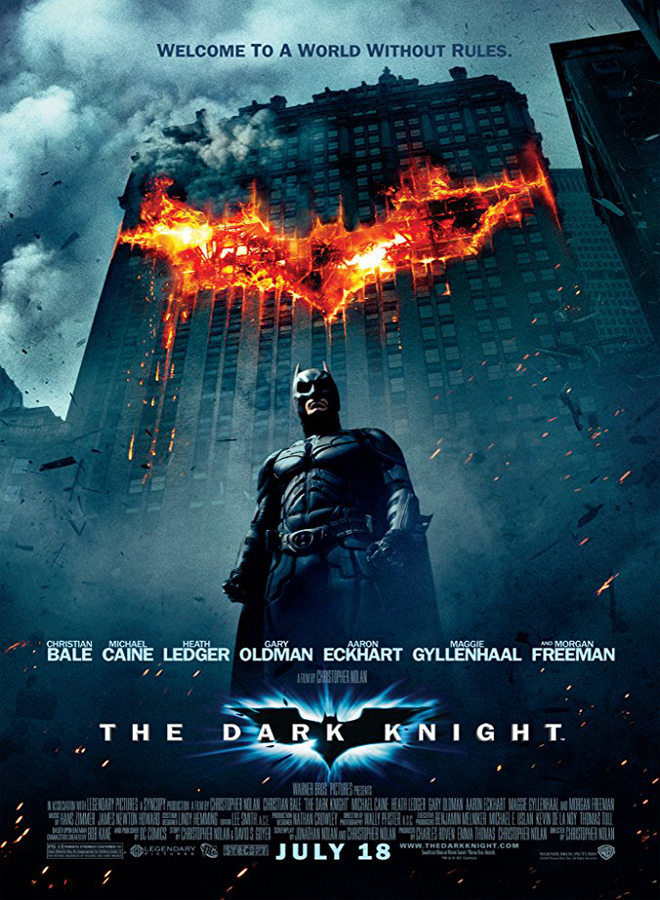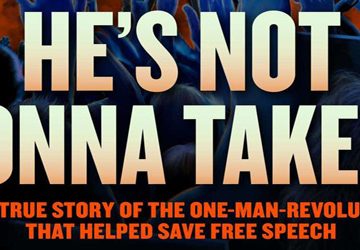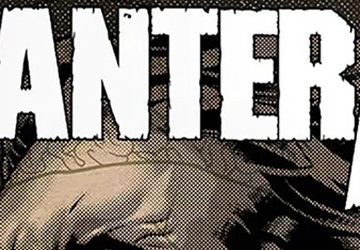People like to think they can avoid the hype, but ultimately they are just as prone to hysteria as anyone else. They might not be excited by a boy band, or a new Fifty Shades book, but it is something. And if it is hot enough, it will pull them in to one degree or another. Then, if it catches on, they will be one of many singing its praises at work, in the coffee shop or online. Naysayers will be shut down, or shut up, as the plaudits build up. To its fans, it will feel like a little slice of heaven, even if its subject matter is dark and heavy.
Or as dark and heavy as a comic-book inspired film can get. It was on Friday, July 18, 2008, when The Dark Knight was released in theaters to widespread acclaim. People had been waiting to see how it would turn out, and they were quite pleased with the results. 2005’s Batman Begins had convinced many that Director Christopher Nolan (Memento 2000, Dunkirk 2017) had made up 1997’s Batman and Robin. But its sequel was Batman’s peak – it could not get better than this!
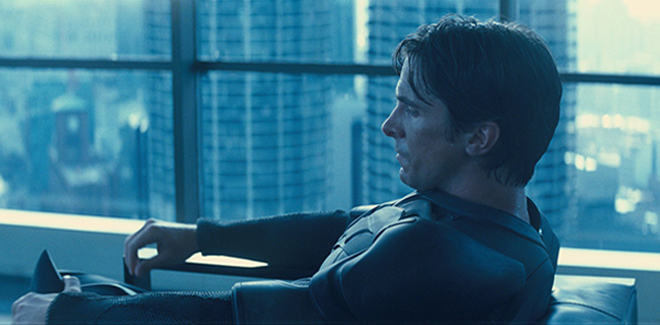
The problem was they were right: it did not get better. The 2012 sequel The Dark Knight Rises irked it out at the international box office, but its predecessor is still the highest-earner domestically. It goes beyond money though. Neither the sequel or the Zack Snyder films beat it out amongst the critics either. The Dark Knight sits pretty on a Rotten Tomatoes score of 94%, compared to The Dark Knight Rises’ 87% or Batman V Superman’s 27%.
But was it really that much better? Why did those films fail to measure up compared to The Dark Knight? It would probably take at least two more articles on The Dark Knight Rises and Batman V Superman respectively to explain that properly. But it is safe to say that The Dark Knight had a tighter story than its sequel. Rises suffered from trying to tie too many threads together.
The Dark Knight Rises put Batman’s clash of ideals with Catwoman (Anne Hathaway: The Princess Diaries 2001, Les Miserables 2012) alongside Blake (Joseph Gordon-Levitt: Inception 2010, Don Jon 2013) being the figurative Robin to Commissioner Gordon (Gary Oldman: Bram Stoker’s Dracula 1992, Darkest Hour 2017), Bane (Tom Hardy: Bronson 2008, Locke 2013) taking over the city, and a nuclear threat. This is not to mention the twist that undercut Bane’s villain role for a character who made little impact on-screen beforehand.
In comparison, The Dark Knight is more straightforward: Batman (Christian Bale: American Psycho 2000, The Machinist 2004) fights the Joker (Heath Ledger: A Knight’s Tale 2001, Brokeback Mountain 2005) for the soul of Harvey Dent (Aaron Eckhart: Thank You for Smoking 2005, Rabbit Hole 2010). That is not to say it does not have its subplots, but they all work towards the main plot. Mayoral candidate Harvey Dent is the new love of Bruce Wayne’s ex, Rachel (Maggie Gyllenhaal: Donnie Darko 2001, Secretary 2003), but he is also Gotham City’s best chance at cracking down on criminals. So, while he is a threat to Wayne’s love life, he is a boon to Batman and Gotham’s citizens.
Then the Joker comes along and threatens to upset everyone’s plans. He wants to bring out the worst in people to expose their true, rotten nature. The joke is that everyone covers it up with superficial, do-gooder talk. The ultimate twist is not due to a nuclear bomb or a last-minute heel turn; it is that the villain ended up being partially right. At least he was in the case of its brightest star.
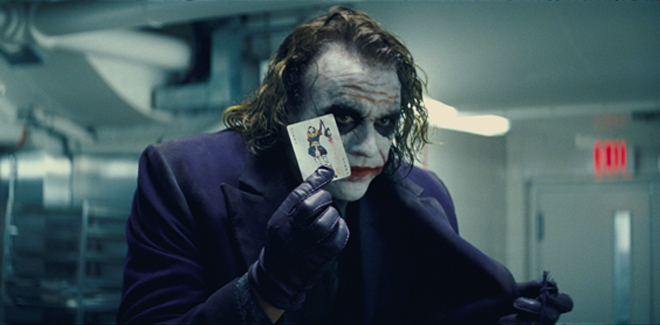
It offers plenty of intriguing character dynamics. Though some find the plot either pretentious, or too serious even for Batman. The dialogue is good for quoting, particularly the Joker, as his ‘Why So Serious?’ scene caught on amongst fans. However, it does sound more like people giving speeches to each other than having a conversation. Alfred (Michael Caine: Get Carter 1971, The Prestige 2006) declaring “Some men just want to watch the world burn,” or Batman being “the hero Gotham deserves, but not the one it needs” sound rather grandiose. It does not mean it is bad, given how Caine, Eckhart, Morgan Freeman (Seven 1995, Invictus 2009) et al work it into the film’s atmosphere. It is just that it often feels like a series of bon mots than banter.
Though it is not like Bat-media did not have gravitas until this film. Batman comics had gradually gotten more serious across the 1970s until Frank Miller got hold of the character in the 1980’s. Then Tim Burton introduced cinema audiences to a dark Batman with his 1989 film. But they still had some of the silliness of superheroics in them. The Dark Knight turns that part down as much as it can: Ledger’s Joker acts like a psychotic performance artist, while Jack Nicholson’s 1989 Joker daubs paint all over priceless portraits to a Prince soundtrack.
Like 1989’s Batman, the Joker dominates the film. Despite the odd, gravelly voice, Bale does fine as Batman; but that voice was not enough to outdo Ledger’s lip-smacking, croaky Joker. His pretty boy beginnings in films like 1999’s 10 Things I Hate About You made some think he was unsuitable for the role. At least, that was until he revealed his methods for getting into character: he would lock himself away for weeks in his hotel room, trying out voices until he got the right one. He would also use a ‘Joker Diary’ containing comic strips and pictures to help produce his take on the character.
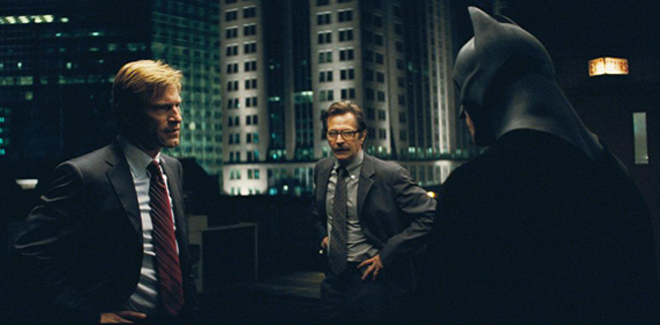
It is hard to argue against the onscreen results: his Joker caught on with audiences and became part of the hype, and it also earned Ledger an Oscar win at the following year’s Academy Awards. The sad part was that it was a posthumous win: Ledger died from an accidental overdose in January 2008, leaving The Dark Knight as his final, fully-finished film role. In the run up to 2017’s I am Heath Ledger, sister Kate Ledger said he would have returned for a sequel if he had the chance. The finished film even hints at it, with the Joker saying he and Batman would fight ‘for years.’
But now nothing can be said for sure. The only place to see Ledger’s Joker is in The Dark Knight, and the film is worth a watch for this alone. It is just that, looking back 10 years later, The Dark Knight is as much a one-off as its villain. DC’s attempts to get serious since have not topped it, and Nolan could not top it either with his sequel. Marvel’s flashier superheroes ended up dominating the following years. Its Cinematic Universe has had its own share of personal dramas, both before and behind the camera. Yet their films never got as gritty or as intimate as in Nolan’s second Bat-film either. It is what makes the film stand strong a decade after the hype, and it may still do so well into the future.
